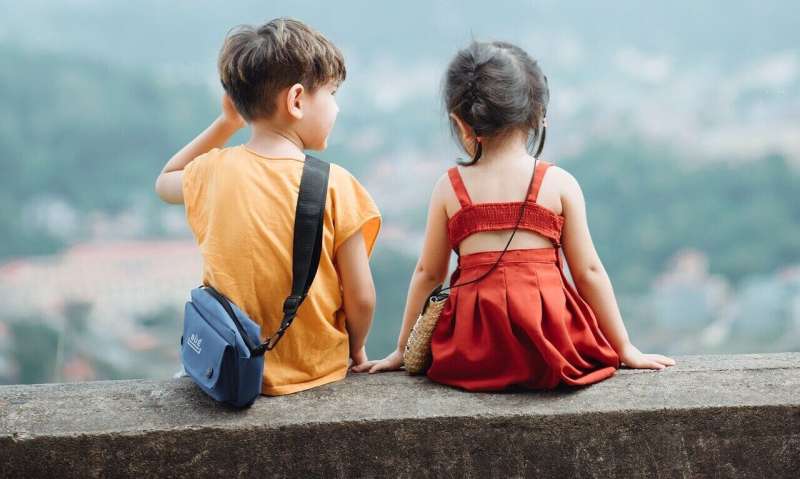Expert offers tips and advice for coronavirus prevention in babies and children

With all the sobering news about the new coronavirus and COVID-19, the disease the virus causes, worried moms and dads can feel better about one detail: At present, the disease seems to be much milder in babies and children.
That said, there is currently no vaccine, so parents should do everything they can to protect children from getting it. Aaron Milstone, M.D., M.H.S., a pediatrician at the Johns Hopkins Children's Center and an infectious disease expert at The Johns Hopkins Hospital, has some practical tips.
How to Protect Your Kids from the Coronavirus and COVID-19
Milstone says, "Children are exposed to COVID-19 when the virus contacts their eyes, nose, mouth or lungs. This usually occurs when a nearby infected person coughs or sneezes, which releases respiratory droplets into the air and onto the child's face or nearby surfaces such as tables, food or hands."
He says the best way to prevent children from becoming sick with COVID-19 is to avoid exposing them to people who are (or who might be) sick with the virus:
- Avoid crowds. Keep kids away from crowded areas when possible.
- Stay away from sick people. Keep children at least 6 feet away from anyone who is sick with a cough or fever, including family members.
Hand-washing and Coronavirus Prevention for Children
- How to wash hands. Milstone advises parents to teach kids to wash their hands regularly, with soap and warm water, for at least 20 seconds. "They can help keep track of time by singing the ABCs, which takes about 20 seconds to finish," he says.
- When to wash hands. Kids should wash their hands after using the bathroom, sneezing, coughing or blowing their nose, before eating (even snacks) and immediately after coming inside from playing outdoors.
- Kids who balk. Milstone says, "If your child is refusing to wash their hands or becoming very upset when asked to do so, it might help to give them a small reward, such as a sticker, to celebrate each time they wash their hands. Compliment them for doing a really good job while washing their hands." It also helps when parents set an example by washing their own hands frequently.
- If soap and water are not available, Milstone says the next best option is hand sanitizer.
Other Coronavirus Prevention Tips for Families
- Cough and sneeze with care. "Encourage everyone in the family to cough and sneeze into their elbow, instead of their hands, and to wash their hands after each time this occurs," Milstone says. "Throw away tissues after they are used," he adds.
- Keep hands off faces. Parents should remind children to avoid touching their face as much as possible. Milstone says it can help if kids carry a toy that will keep their hands busy, but he notes that parents should wash those toys regularly.
- Keep things clean. Wipe down toys and surfaces your child touches regularly, especially when traveling or when near a person who is sick. Clean surfaces at home and store cleaners in cabinets that are either too high for your child to reach or are secured with childproof cabinet locks. (More cleaning recommendations are available from the Centers for Disease Control and Prevention.)
- Address anxiety and stress. Talking things over as a family can help identify specific fears and clarify the facts. It also helps for families to discuss a plan in case someone gets sick, if a school closes or something else happens that interrupts the normal routine. "Children will look to you when deciding how to feel about COVID-19. If you feel calm and prepared, they are likely to feel similarly," Milstone notes.
Children with Medical Conditions
- Asthma. Kids with asthma may have more severe symptoms from COVID-19 or any other respiratory disease, including the flu. As yet, there are no indications that children with asthma are experiencing severe symptoms due to the coronavirus, but it pays to be vigilant. Parents should observe them carefully and, if necessary, take them to the doctor to get them evaluated and make sure their medicines are working.
- Diabetes. So far, there have been no reports of children who have diabetes doing worse than their peers when infected with the new coronavirus. Control is key. Children with well-managed diabetes are not expected to be at much risk or more susceptible to COVID-19. But poor diabetes control can weaken the immune system, so parents and doctors should watch these children carefully.
Kids and families can reduce coronavirus risk together
Though much more is yet to be understood about the new coronavirus, COVID-19 seems to have less serious health consequences for children than for adults, which is encouraging news. Still, it is important to avoid infection among children and help prevent the virus from spreading. Families with children can work together to reduce the risk.





















